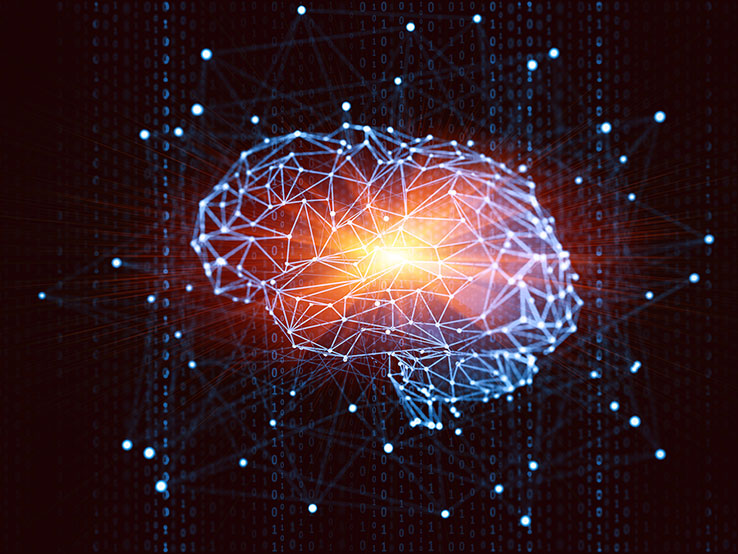Sabin Selimi
 Today, humans run for office. Tomorrow, the intelligent machines will. And, they may win, as citizens become increasingly frustrated with human politicians.
Today, humans run for office. Tomorrow, the intelligent machines will. And, they may win, as citizens become increasingly frustrated with human politicians.
It is the year 2050. During the recent European parliamentary elections, a political candidate named “Eva”, hailing from a southeast European country now part of the European Union, ran for a seat in Strasbourg. She ran her campaign using a slogan like “I am your champion, who knows you best” and she did receive a couple thousand votes. To be correct, “Eva” was not a she, but an artificial intelligence (AI) system.
What happened in the imaginary scenario described above is reflective of how politics is changing in the digital age. Today, humans run for office. Tomorrow, the intelligent machines will. And, they may win, as citizens become increasingly frustrated with human politicians.
The state of democracy today at Europe’s doorstep is rather perplexing. After the dissolution of Yugoslavia, the spread of liberal values and the rise of the Internet were supposed to empower the individual and cement liberal democracy as the dominant political force of the post-Cold War era. However, we have witnessed a twist of fate. We have entered post-normal times, since all that we considered “normal” are now gone. The new, post-normal era for southeast Europe has been defined by uncertainty and complexity, and alarmingly, the slow erosion of democratic norms and the rise of populist authoritarianism.
At the core of the crisis of democracy in the region is a lack of citizens’ trust in state institutions. What we see in the region today is leaders appealing to nationalist sentiments and populism on the rise, who support authoritarian practices and vilify the free press, including failing to respond to endemic corruption and high unemployment. UK’s then-Prime Minister Winston Churchill, two years after the end of World War II, famously said, “Democracy is the worst form of government.” Churchill’s statement still rings true today, but will it remain true in the future? Are there other forms of democracy that we have not thought of yet?
Given that AI is expected to make dramatic changes to societies globally in the next few decades, going beyond anything dreamed up during previous technological revolutions, a plausible future scenario would be that AI governs together with humans. Think of southeast Europe. What would such a future look like? This question is rarely, if ever, explored.
The new technological revolution will not only replace humans in routine tasks that can be easily replicated by machines, but will facilitate the automation of complex tasks. The new, intelligent machines will replace humans in every aspect of life, from driving cars to diagnosing diseases and more. Taking into account the recent breakthroughs in the field of deep learning, one should consider what does this mean for your constituent representative or the politicians in the region in general?
Imagine, for a moment, what knowledge, skills and attributes should your human constituent representative in parliament possess to be perfect, if the primary goal of the elected human politician is to represent their constituent and implement an effective policy agenda. A perfect human politician should perhaps understand the issues affecting the people they represent such as what challenges face them and what policies would they like to see changed. To craft policies that will resonate with their constituent and push the community forward as a collective whole, a perfect democratically-elected representative should have an in-depth understanding of the community’s past, its present state, and the challenges ahead. Additionally, a perfect human politician should be a skilled negotiator, a consensus builder and a great crisis manager. Can AI be attributed with these abilities?
 Source: nbcnews.com
Source: nbcnews.com
When it comes to automating knowledge, the new machines are powerful conduits of knowledge and could act as valuable associates for government officials. However, when it comes to skills, it is slightly more difficult to break down as, currently speaking, AI can help design policies and respond to risks, but is far from being able to negotiate skillfully or craft policies that will resonate with the public. In the next few decades, humans will still be needed to provide emotional intelligence and creativity in the political scene, but, as AI advances, the new machines may become capable of performing complex tasks. Moreover, attributes will be the hardest aspect to replicate as the machines may act solely as rational beings. A human presence in governance will likely be necessary for the foreseeable future.
Considering that the EU Commission has released a strategy to promote the use and development of AI, the issue in southeast Europe has never, if ever, been explored. I believe we need to assess the consequences of the growing intersection between AI and politics. We need to debate what kind of world we want to live in, before it is too late. I conclude with possible scenarios for the future of democracy in the region. Which scenario comes to fruition is up to you, dear reader. How do you want the intelligent machines to impact the future of democracy and the role of politicians in the region?
One of the possible scenarios for the future of democracy in southeast Europe is to reject AI-powered politics and go for status quo. Authorities may incorporate narrow AI technologies to restore citizens’ trust in them by improving the effectiveness and efficiency of public service, while being a constituent representative or a politician would remain strictly human occupation. Another possible scenario is humans deciding to fully automate government and hand power to the intelligent machines, appointing them in certain key positions.
But, what if, in half a century or so, humans decide to govern together with the intelligent machines, which means automated politicians like “Eva” and human politicians will compete against one another for the same seats in parliament. Perhaps this sounds far-fetched, but it is a possible scenario that we should keep in mind as we debate the unthought future of democracy in the region. One should consider whether such form of democracy would restore citizens’ trust in state institutions or sow new seeds of distrust.


